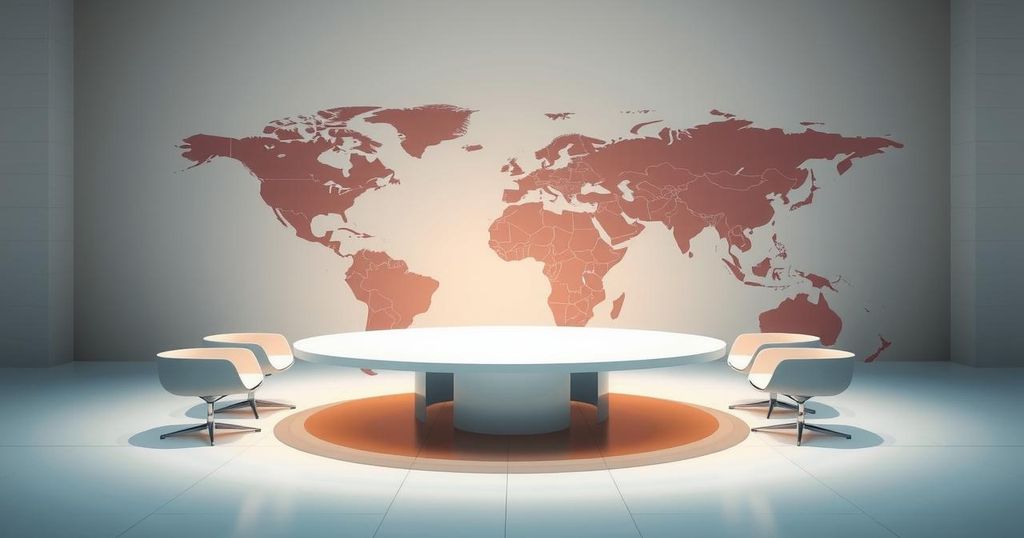South African President Cyril Ramaphosa opened G20 talks, stressing the need for multilateralism amid the absence of US officials, who boycotted the meeting. This highlights the challenges South Africa faces as the first African nation to hold the G20 presidency, especially given recent strained relations with the US government.
President Cyril Ramaphosa of South Africa addressed G20 foreign ministers, emphasizing the importance of multilateralism and adherence to international law in addressing global crises. These remarks came amid rising concerns regarding the impact of the Trump administration’s “America First” policy, highlighted by the absence of US Secretary of State Marco Rubio and Treasury Secretary Scott Bessent from the meeting.
Rubio justified his absence, stating that he would not participate in discussions perceived to support anti-Americanism, while Bessent noted prior commitments in Washington. As the first African nation to assume the G20 presidency, South Africa aims to advocate for the interests of developing countries during discussions with prominent economies.
The G20 comprises 19 nations, along with the African Union and European Union, representing over 80% of the global economy and two-thirds of the world’s population. Notable participants included foreign ministers from China, Russia, France, and the UK, with the US represented by its deputy chief of mission at the South African embassy.
In his opening remarks, Ramaphosa highlighted the fragility of global coexistence due to increasing intolerance, conflicts, and complications from climate change, expressing concern about the lack of consensus among major powers, including within the G20. He stressed that the principles of the United Nations Charter, multilateralism, and international law must be central to all collective efforts.
Holding G20 presidency until November 2025, South Africa is situated in a challenging diplomatic climate, particularly following strained relations with the United States, which have escalated since President Trump took office. Trump’s administration has reduced aid to South Africa, accusing it of discriminatory practices against the Afrikaner community and filing a genocide case against Israel in 2023.
Rubio criticized South Africa’s actions, claiming the country is misusing the G20 framework to advance initiatives on diversity, equity, inclusion, and climate change, which he views as detrimental to American interests. On social media, he affirmed his commitment to advancing America’s national interests rather than endorsing critiques against it.
In summary, South Africa’s G20 presidency faces significant challenges amidst a diplomatic rift with the United States, exacerbated by the absence of key US officials at the foreign ministers’ meeting. President Ramaphosa’s call for multilateralism underscores the critical need for international cooperation in addressing global crises, despite growing tensions surrounding national interests and policies. The outcomes of South Africa’s leadership will influence discussions on vital issues such as climate change and equality on the global stage.
Original Source: www.bbc.com




